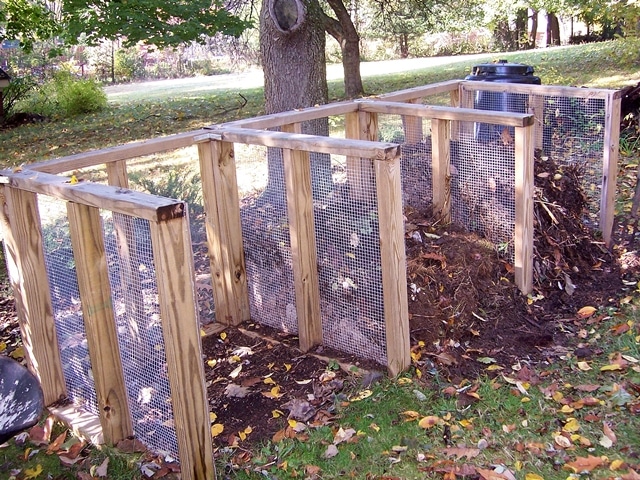When it comes to creating splendor in the garden in a low-cost, sustainable manner, Shawna Coronado learned from the original “queens of the garden hack.”
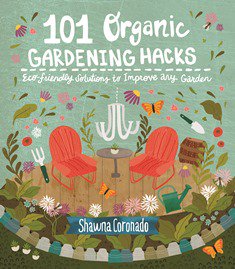
(Shawna Coronado)
“My grandmothers were—and continue to be—my greatest inspiration,” says the sustainable living coach and author of 101 Organic Gardening Hacks: Eco-friendly Solutions to Improve any Garden. “From a generation that habitually recycled, reduced and re-used, my grandmothers wasted nothing and saved everything. Those are concepts easily incorporated into the garden.”
In her new book, Coronado shares gardening hacks that allow you to create a sustainable garden that is also eye-catching. Her own suburban Chicago landscape brims with veggies, flowers, pathways, sculptures and homemade garden art.
Coronado describes a garden hack as a trick that solves a problem in an elegant way and/or offers a frugal solution. Here are some hacks from her book that you can easily incorporate into your own garden.
Create an easy compost bin
Like all veteran gardeners, Coronado knows that a successful garden starts with healthy soil. For that reason, composting is a must. She offers advice for creating compost bins made out of recycled and re-used materials. These include an old plastic bin composter made from a plastic storage tub, a trash can composter and a quick and easy compost station made with wood and chicken wire.
Reuse cooking water in the garden
Rather than throwing out cooking water, Coronado believes in recycling it. Depending on what you cook, the water may hold nutritional value for your plants. For instance, after cooking hard-boiled eggs, the water contains calcium, which is good for plants that require this mineral, including those in the Solanaceae family, such as tomato, eggplant, pepper and tomatillo.
When you boil greens like chard and spinach, the water contains extra iron, which plants susceptible to chlorosis require, such as citrus and azalea. Avoid using salted water, as the salts aren’t good for plant roots or the soil.
Boiling water can also be used to kill weeds. Use hot pads and caution when bringing the boiling water outdoors. Pour it over the crown of the weeds.

Due to colony collapse, bee populations are down. That means it’s vital that you do whatever you can to help the remaining bees. Planting bee-friendly plants is a start.
Bees also require water. A great way to give these vital creatures a good drink is to create a bee station. To do so, Coronado uses bee preservers, which are pretty glass balls covered in bumps. Place them in a vessel of water, and the bees land on the balls and drink. To attract the bees to the water, Coronado suggests adding 10 to 12 drops of lemongrass oil, which is an essential oil that attracts bees.
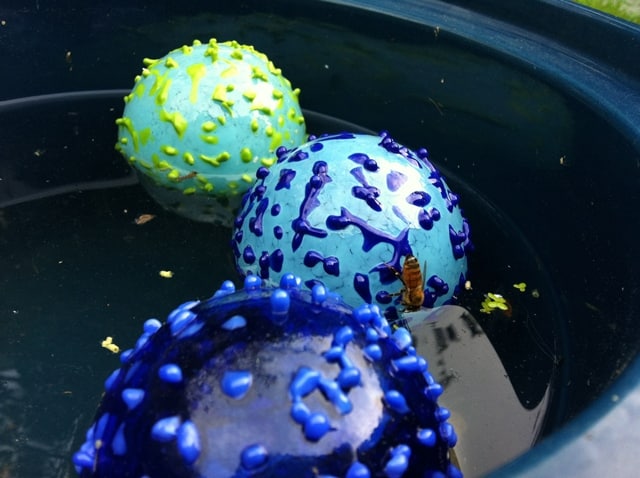 (Shawna Coronado)
(Shawna Coronado)
Easy seed packet storage
Old photo albums make a great place to store seed packets for future reference and use. Rather than rummaging around in the garden shed, you can flip through the album when it’s time to plant.
Include in the various pockets of the album the seed packets, as well as information on the plants. Include how the plants grew and how long it took the seeds to germinate. This is also a good place to put plant tags and even photos of the resulting plants.
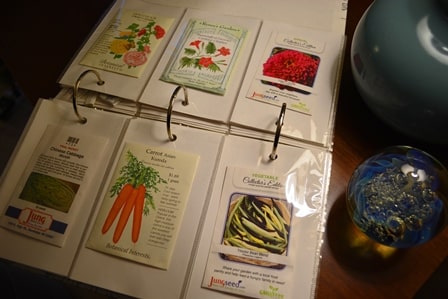
(Shawna Coronado)
Seed saving made simple
After plants have gone to seed, you have a small window of opportunity to collect the seed before it drops or blows away or birds and other critters feed on them. An easy way to collect seed is to put a paper bag on the seed head just as the seed is ripening. Secure it with a rubber band, so that the seed stays within the bag.
To harvest the seed, simply cut the stalk of the plant, turn it upside down, and the seed will fall into the bag for safekeeping.
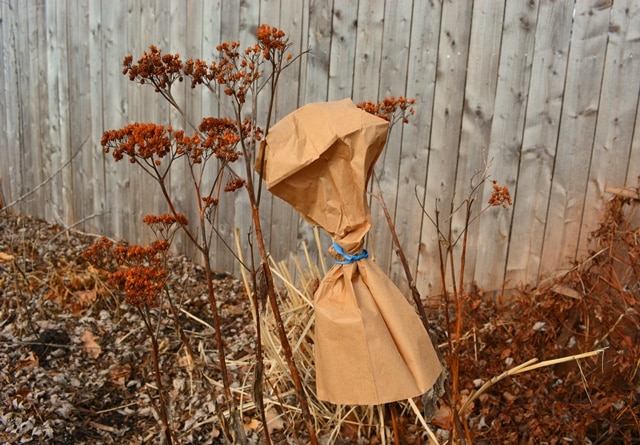
(Shawna Coronado)
Julie Bawden-Davis is a garden writer and master gardener, who since 1985 has written for publications such as The American Gardener, Organic Gardening, Wildflower, Better Homes and Gardens and The Los Angeles Times. She is the author of seven books, including Reader’s Digest Flower Gardening, Fairy Gardening, The Strawberry Story, and Indoor Gardening the Organic Way, and is the founder of HealthyHouseplants.com.

